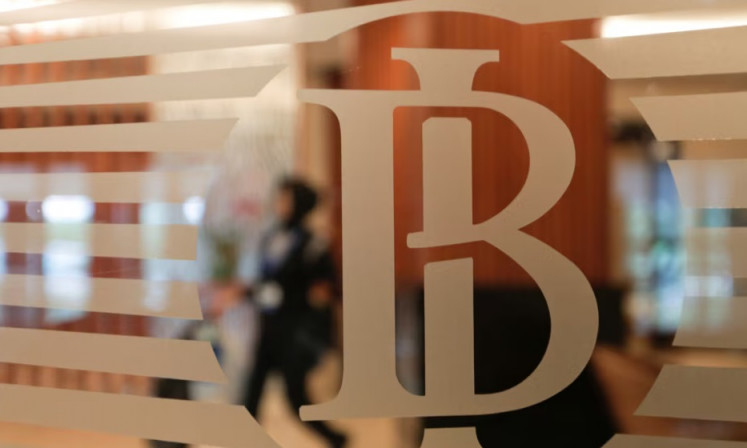Popular Reads
Top Results
Can't find what you're looking for?
View all search resultsPopular Reads
Top Results
Can't find what you're looking for?
View all search resultsUS duties on biodiesel ‘unlawful’, govt says
Indonesia has issued a statement condemning the United States’ recent decision to increase anti-dumping duties for local biodiesel to a record-high 276
Change text size
Gift Premium Articles
to Anyone
I
ndonesia has issued a statement condemning the United States’ recent decision to increase anti-dumping duties for local biodiesel to a record-high 276.65 percent, on top of anti-subsidies duties of up to 64.73 percent.
The Trade Ministry deemed the latest move by the US government as “unlawful double remedy” and “inconsistent” with World Trade Organization principles.
Responding to the US decision, the Indonesian government is now lobbying the US International Trade Commission (USITC), which is expected to approve the implementation of the anti-dumping duties based on whether US biodiesel producers are materially injured by the import. The USITC is expected to make its decision on April 6.
The ministry’s trade security director, Pradnyawati, said the decision was a blatant violation of WTO principles and if the commission pressed ahead with the decision, Indonesia had the right to take the case to the WTO.
“The decision, issued on Feb. 21, upholds a preliminary decision in October 2017, in which the USDOC [US Department of Commerce] applied methodologies for calculating and assigning dumping margins that are inconsistent with WTO rules,” she said in a statement released Friday, adding that other countries, such as Canada, could make a similar move if Indonesia failed to stop the US move.
The US calculation is considered “WTO-inconsistent” as the USDOC applied the so-called “particular market situation” (PMS) methodology, whereby it replaces an exporter’s actual costs with higher foreign costs, hence the inflation of the dumping margin for Wilmar Trading PTE Ltd. to 92.52 percent, even though the firm has used generally accepted accounting principles (GAAP).
For PT Musim Mas, which is also targeted by the measure, the USDOC accused it of imposing a punitive “adverse facts available” rate that bears no relationship to the company’s actual records, putting the duties rate at 276.65 percent.
The USDOC, meanwhile, determined the rate after considering the firm’s “failure to provide certain information”.
The figures increased from 50.71 percent for all exporters last October.
Pradnyawati said the replacement of an exporter’s costs according to the US calculation was similar to what the European Union had used to calculate duties for Indonesian biodiesel in 2013. The WTO said the EU anti-dumping duties were unlawful in a ruling in January, when Indonesia won the case.
If implemented, the duties will add to the anti-subsidies or countervailing duties of 64.73 percent for PT Musim Mas and 34.95 percent for PT Wilmar and other companies. The duties, which were applied on Nov. 9, would also worsen the situation for Indonesian exporters already experienced in the US market, where biodiesel made from soybeans is favored over biodiesel made from crude palm oil.
The latest measure was taken only two weeks after the US Congress reinstated a $1 per gallon biodiesel tax credit in a budget deal, which is expected to increase US biodiesel makers’ profits.
The US is Indonesia’s biggest market for biodiesel. In 2016, biodiesel was worth US$255.56 million, 89.19 percent of the total export of local biodiesel, Trade Ministry data shows.
Between 2014 and 2016, export volume to the world’s largest energy market increased by an average of 47.31 percent annually, according to Trademap.
However, in March 2017, 15 US biodiesel producers grouped under the National Biodiesel Board (NBB) Fair Trade Coalition lodged an anti-dumping and anti-subsidies petition.
Uncertainty has risen in the palm oil industry since the petition came out, which caused the biodiesel export to the US to plunge by 99.97 percent year-on-year (yoy) to $71,000 as of September 2017, Trademap data shows.
Indonesian Biofuel Producers Association chairman Paulus Tjakrawan said the allegation that local biodiesel producers benefited from the government subsidy was baseless.
Indonesia, however, does have an Oil Palm Estate Fund (BPDP-KS) that collects palm oil export levies, but the proceeds are used to pay the price difference of biodiesel sold domestically at the price market index (HIP) calculated by the government and diesel — as the basic materials to produce biodiesel — sold by state oil firm Pertamina to biodiesel producers at the Singapore-based oil product price or MOPS.










